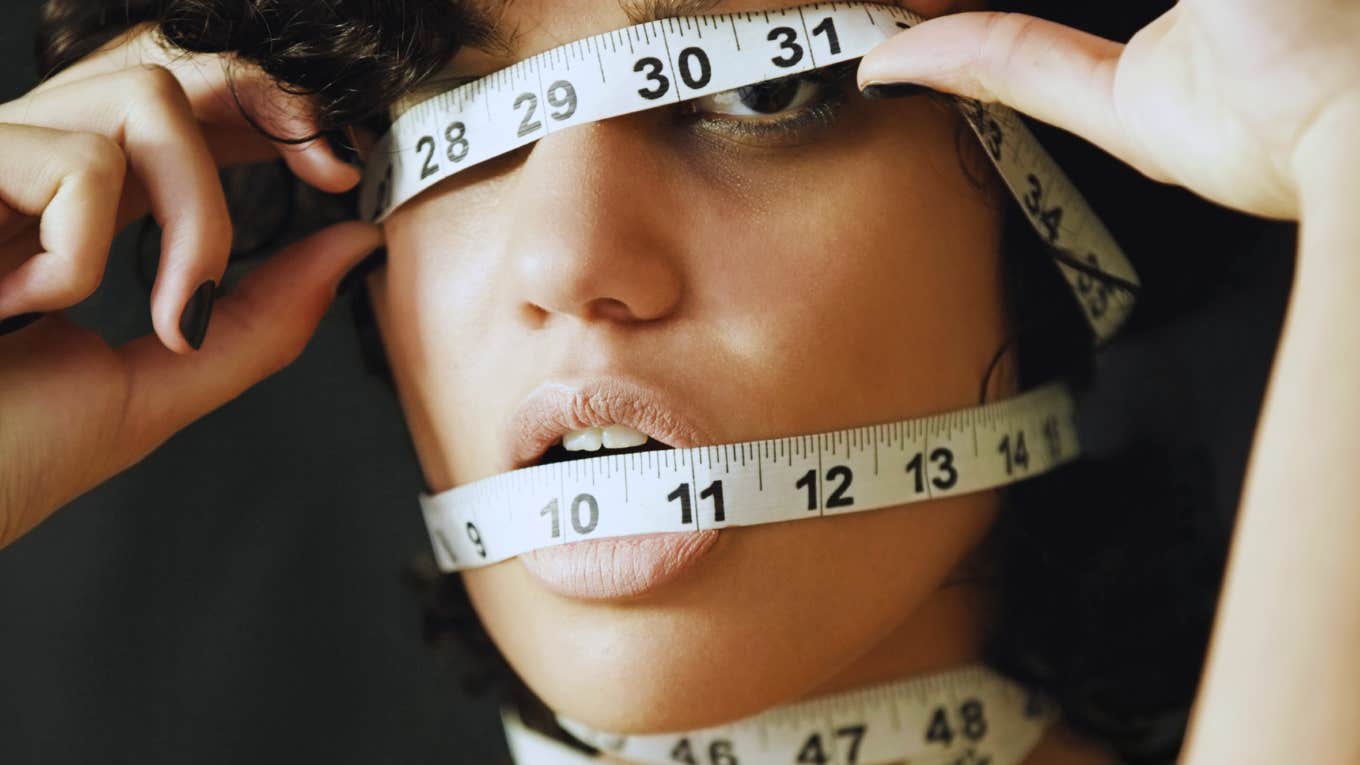Why The Most Common Eating Disorder Gets The Least Attention
Not every eating disorder looks the same.
 Peopleimages.com - YuriArcurs | Canva
Peopleimages.com - YuriArcurs | Canva Have you sat alone and downed a box of cookies or a pint of ice cream so fast that you barely even noticed what you were doing until after you were finished? Have you ever eaten so much that your body and mind hurt? Did you feel guilty, ashamed, and bad about yourself? If so, you know what a food binge is. Have you done this several times in a week, vowing that tomorrow would be different? If so, you might be dealing with Binge Eating Disorder (B.E.D).
It used to be that we only considered eating disorders to be anorexia or bulimia, but we are finally coming around to taking B.E.D seriously as it's just become a legitimate diagnosis and included in the DSM-5. With B.E.D., food is your drug. You use it alone and you use it in secret. Sometimes you don't even know what you are doing until you are finished with the actual binge. While researching for my book Reclaiming Yourself From Binge Eating, I learned that over eight million men and women in the U.S. alone are suffering from B.E.D.
So, why does B.E.D. get so little attention? Well first off, most people who suffer don't even know they have an eating disorder. They assume that their secret binges are a problem that could be solved if they could just stick to their diets. There is also not a whole lot of support for people suffering from B.E.D. The diet industry preys on people who are desperate to overcome their food and weight issues, therefore, people who are bingeing are vulnerable to the next quick fix, the next diet, and the next exercise regimen to help them lose weight. If you are suffering from B.E.D., you are not alone. There are things that you can do to get a handle on your eating and come back to a place of calmness around food.
Here are the top 3 things that you can do to reclaim yourself from binge eating:
1. Vow to stop dieting
Dieting keeps you in the cycle of bingeing. If diets worked, you would have gone on one diet once and never had to diet again. When you stop dieting, you stop supporting an industry that preys on vulnerable people. Instead, begin to practice intuitive eating, a way of eating where you are listening to and are directed by the needs of your body.
2. Get support
Joining a group like Overeaters Anonymous will keep you from feeling so alone in your struggle. Binge eating is something that people do alone and in isolation, however, recovery happens with help, love, and support.
3. Become aware
Understand what triggers you emotionally, and physically, as well as what your food triggers are so that you know what causes you to binge. Once you are aware of them, you can have more control over your urges.
Eating disorders are very common.
According to the ANAD (Association of Anorexia Nervosa and Associated Disorders), eating disorders affect 9 percent of the population worldwide, and 28.8 million Americans will have an eating disorder in their lifetime. Eating disorders disproportionately affect BIOPC, LGBTQ+, and people with disabilities. Second to only opioid overdose, eating disorders are among the deadliest mental illnesses with 10,200 deaths each year as the direct result of an eating disorder — that’s one death every 52 minutes. If you or a loved one are struggling with disordered eating, contact the National Eating Disorder Helpline’s toll-free phone number: 1-800-931-2237.
Leora Fulvio, MFT, is a Psychotherapist and Certified Clinical Hypnotherapist specializing in the treatment of eating disorders, body image issues, self-esteem, and self-worth issues, and couples counseling.

